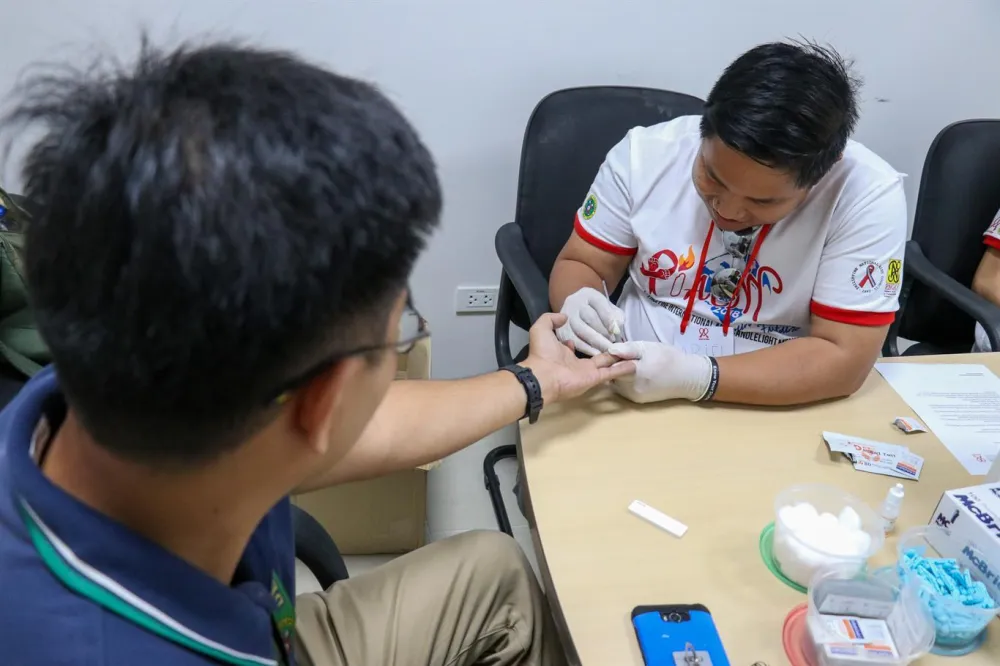Explainer on Batas Kasambahay: What Rights Do Domestic Workers Have?

Domestic work is real work — and it takes a village to carry out. In the Philippines, it is common for households to employ stay-in and stay-out domestic workers, also known as "kasambahay" or "house helpers," to help families in keeping house, from cleaning and laundry to cooking, gardening, childcare, and other duties.
In 2013, the late President Benigno Aquino III passed into law Republic Act No. 10361, also known as the “Domestic Workers Act” or “Batas Kasambahay,” thus establishing policies for the welfare and protection of domestic workers.
Whether you employ a kasambahay in your household or plan to in the future, it's imperative to be aware of the law and implement its provisions. Here's what you need to know about Batas Kasambahay.
Key Information: Pre-Employment
Employment Contract
As mentioned above, Batas Kasambahay requires an employment contract between an employer and a domestic worker prior to the beginning of the latter's service. The contract shall be created in a language or dialect that both the employer and domestic worker can understand.
The said contract shall include the following specific information: the domestic worker's duties; period of employment; compensation; authorized deduction; hours of work and proportionate additional payment; rest days and allowable leaves; board, lodging, and medical attention; agreements on deployment expense; loan agreement; termination of employment; and other lawful conditions agreed by the employer and domestic worker.
Pre-Employment Requirements
Ahead of the implementation of the employment contract, the law stipulates that an employer may require certain documents from a domestic worker.
These pre-employment requirements include a medical certificate or a health certificate issued by a local government health officer; a barangay and police clearance; a National Bureau of Investigation clearance; and an authenticated birth certificate. A domestic worker may provide another document that shows their age in the absence of a birth certificate, such as in the form of a voter's ID card, baptismal record, or passport.
Key Information: Employment
Rest Periods
Once a domestic worker is employed, the employer must adhere to the conditions and terms of the law, which include daily and weekly rest periods.
According to Batas Kasambahay, a domestic worker must be entitled to an aggregate daily rest period of eight hours per day. He or she must also be entitled to at least a 24-hour consecutive period of rest in a week, the schedule of which shall be agreed upon in writing by the employer and domestic worker.
Minimum Wage, Leaves and Social Benefits
Domestic workers' salaries must not be less than the minimum wage. At the time the law was passed, the minimum wages for domestic workers were only P2,500, P2,000, and P1,500, respectively, for those in Metro Manila, chartered cities or first-class municipalities, and other municipalities.
Currently, the minimum wage for domestic workers in Metro Manila is P5,000, based on the new monthly minimum wage rate released by the NWPC in January 2020.
Meanwhile, leading law firm ACCRALAW noted on Jan. 19, 2021, that the monthly minimum wage rate in other regions now ranges between P2,000-P5,000.
Payment of the wages must also be done on time and paid directly to the domestic worker in cash at least once a month. Employers are required to provide domestic workers with a copy of their pay slip every payday, including any deductions that were made.
The Batas Kasambahay stipulates that domestic workers are entitled to a 13th month pay.
Domestic workers must likewise be allowed an annual service incentive leave of five days with pay, granted that they have rendered at least a year of service.
As for social benefits, domestic workers who have rendered at least a month of service to their employers should be covered by the Philippine Health Insurance Corporation (PhilHealth), Social Security System (SSS), and Pag-IBIG.
Realities and Developments
Batas Kasambahay has been in effect for more than a decade, yet gaps and challenges remain in its implementation.
One of its foremost stipulations is the requirement of a written employment contract and social benefits for domestic workers, yet a joint survey by the Department of Labor and Employment (DOLE) and the Philippine Statistics Authority (PSA) released by the National Wages and Productivity Commission (NWPC) in November 2020, showed that only 35,000 out of over 1.4 million domestic workers in the country have written contracts with their employers.
The same survey reported via the Philippine News Agency on Dec. 2, 2020, showed that 70% of the 1.4 million domestic workers in the country are "stay-out" or are not living with their employers. Moreover, 83% are not covered by any social security benefit, whereas 2% contribute to or shoulder their entire social benefit contribution without help from their employers.
Even more, only 41% of domestic workers in the country are aware of the existence of Batas Kasambahay.
Following the survey's release, NWPC Executive Director Criselda Sy was quoted in a virtual forum that the information from the survey shall be used to reevaluate DOLE's programs.
"We are worried of those who have no written [contract] since it's been seven years that the law is being implemented," Sy said. "Since we have now baseline info, we will have the chance to review programs of DOLE for the kasambahay and other agencies involved in the welfare of domestic workers."
To address some of the gaps of Batas Kasambahay and to bolster its implementation, the DOLE enacted Department Order No. 217, also known as "The Rules and Regulations Governing Recruitment and Placement of Domestic Workers by Private Employment Agencies for Local Employment," on Oct. 27, 2020.
The D.O. recognizes the participation of the private sector in the employment of domestic workers through recruitment and placement. One of its aims is to regulate Private Employment Agencies (PEA) and ensure that PEA licensees are able to carry out their responsibilities.
Some of these responsibilities include securing qualified domestic workers for employers, obtaining the best terms and conditions of employment for domestic workers, and making sure domestic workers are not charged or required to pay any recruitment or placement fees. PEAs must also keep copies of employment contracts of domestic workers, which shall be accessed during inspections or when required by the government, among others. The entirety of D.O. No. 217 may be read here.
Moreover, when news of the abuse of domestic worker Elvie Vergara came to light in 2023, it prompted lawmakers like Senator Raffy Tulfo to push for the amendment of Batas Kasambahay. The Commission on Human Rights (CHR) supported this move, saying in a statement that the law is not enough to protect domestic workers from abuse at the hands of their employers.
"The Batas Kasambahay provides domestic workers protection in their employment, but this has not been enough to deter some employers from committing abuses and maltreatment against their kasambahay," CHR said.
The agency also suggested that amendments to Batas Kasambahay should include bolstering the penalties for crimes committed against domestic workers, the establishment of emergency hotlines in every barangay for domestic workers, and boosting the distribution of information about the law.
Get the latest curated content with The Beat Asia's newsletters. Sign up now for a weekly dose of the best stories, events, and deals delivered straight to your inbox. Don't miss out! Click here to subscribe.







































































